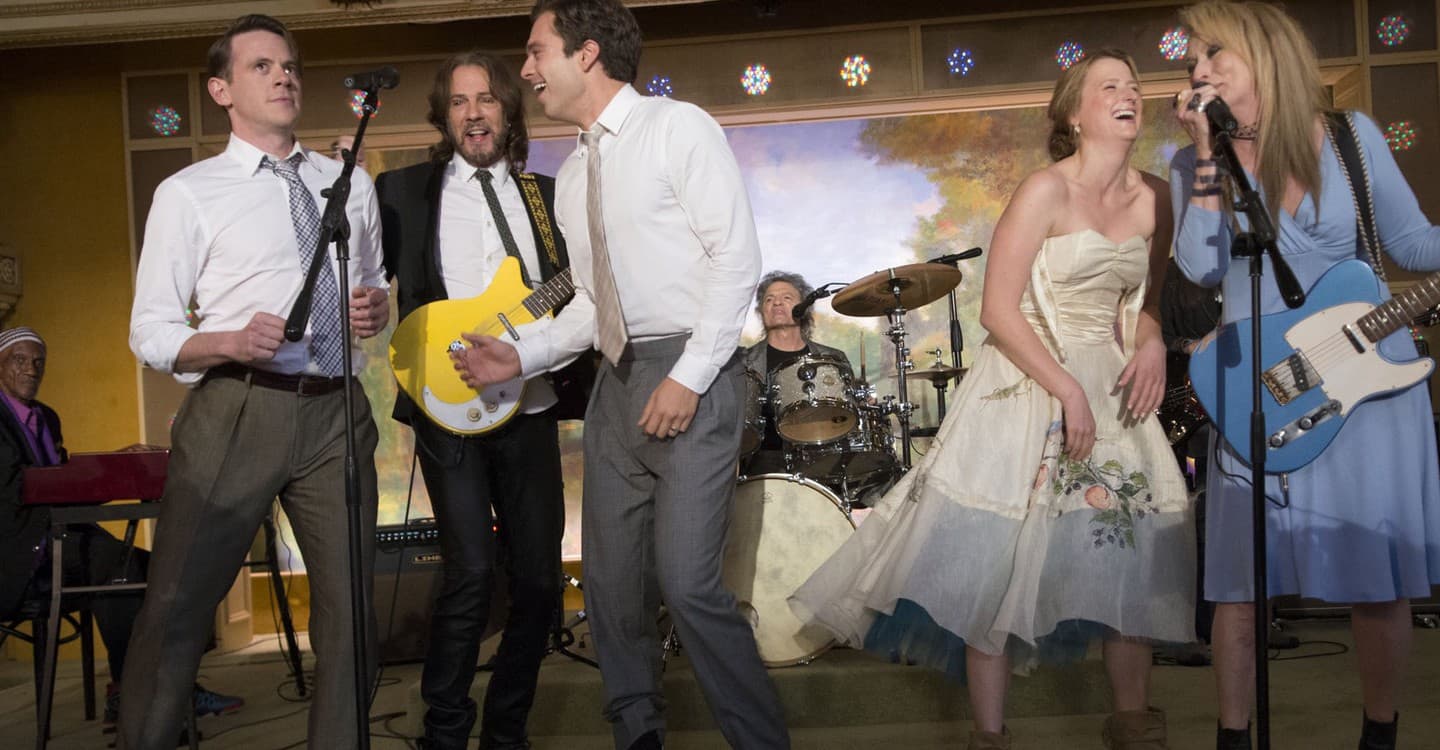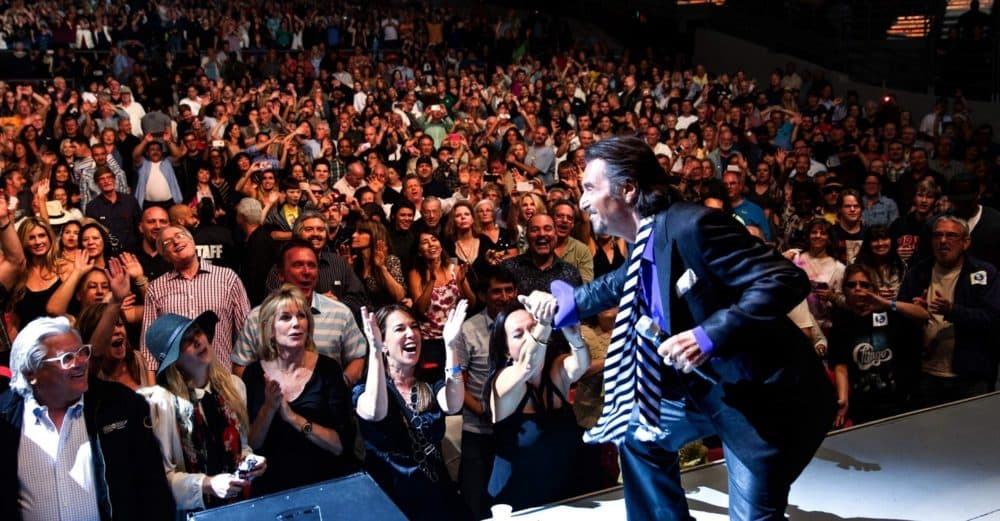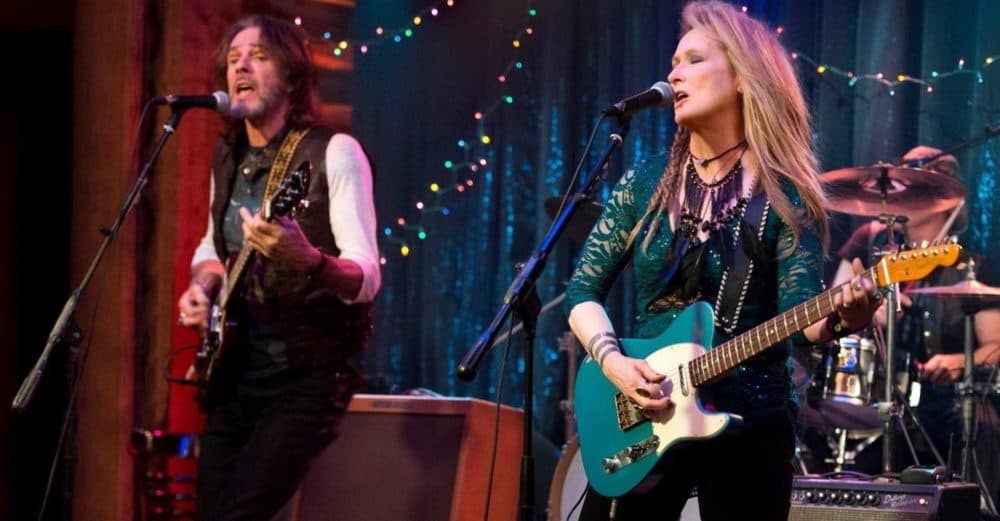Advertisement
Quarantine Double Feature
Quarantine Double Feature: Making Musical Amends

Quarantine Double Feature is a series in which we pick two films available for streaming and discussion while we wait out this crisis at home. This week: Making Musical Amends.
There’s a certain kind of straight-down-the-middle, crowd-pleasing character comedy that Hollywood doesn’t have much interest in making anymore. Before multiplexes entered the Age of Ultron there was room for glossy star vehicles about regular people and pictures like “Jerry Maguire” or “As Good as It Gets” could become big blockbusters. These were the kind of movies you’d go see with your whole family on holidays, and there’s no doubt in my mind that, had they been released back in the 1990s, “Danny Collins” and “Ricki and the Flash” would have been huge hits, probably even scoring a couple of those token Oscar nominations they give to popular films everybody likes that have no real chance of winning anything. But in 2015 both movies vanished without a trace.
Too square and mainstream to be critical favorites and too modest to make much of a ruckus otherwise, these films fell through the cracks. I’m told the audience for such fare long ago migrated to television, so since we’re all stuck at home anyway let’s take another look at two warm and winning musical comedies about deadbeat parents making past due amends. “Danny Collins” stars Al Pacino as a fading superstar scamp singing yesterday’s hits and having an extremely tardy midlife crisis. “Ricki and the Flash” is headlined by an against-type Meryl Streep as a blue-collar bar band rocker reunited with the family she abandoned to follow dreams that didn’t pan out. These are wistfully funny movies about taking your last chance to fix what’s broken in the rearview, featuring deliciously oversized movie star turns by two of our finest. There were better films I saw that year but few I’ve returned to as often.

All done up with a spray tan, gaudy costume jewelry and a dazzling array of scarves, Pacino’s title character in “Danny Collins” is a Neil Diamond/Barry Manilow hybrid still selling out arenas to the senior citizen set. His drug and alcohol consumption is unbecoming of a man his age, as is his 20-something trophy fiancée, at least according to Danny’s long-suffering manager (a devastatingly droll Christopher Plummer). The singer is knocked out of his stupor after receiving a decades-delayed fan letter from John Lennon, who it turns out was impressed with the young performer’s early, earnest songwriting back in the 1970s. The revelation rocks Danny into wondering what his life might have been like if he’d followed his muse instead of selling out and singing other people’s slickly packaged hits.
Danny drops everything and moves to a Hilton in suburban New Jersey. He has a grand piano brought to his small suite and tries to write songs again, eventually working up the nerve to make some fumbling, awkward attempts at reconciling with the angry, adult son (Bobby Cannavale) he never knew. Written and directed by Dan Fogelman — who went on to create the hit TV show “This Is Us” — the movie sees Danny as a well-meaning work in progress, the kind of guy who swears off drinking after his fifth or sixth Scotch of the evening but really means it in the moment. He knows he can’t just show up after all this time and buy the affections of his estranged family. Still, they’re in a financial jam and his money sure doesn’t hurt. “Danny’s got a good heart,” Plummer tries to explain, “It’s just up his a-- most of the time.”
The film’s most enjoyable sequences find Pacino trying to woo Annette Bening, who co-stars as the hotel’s manager with a dizzy, irresistible charisma. They’re adorable together as she declines his increasingly enthusiastic advances — Danny’s not used to being turned down — and he soldiers on with wide-eyed, lovestruck ardor. (In some of these scenes, Pacino’s practically playing Pepé Le Pew.) When he congratulates himself on finally finding an age-appropriate love interest, Plummer points out that she’s a good 20 years younger than him. “Baby steps,” Danny answers with a sly smile.
Pacino plays the character with an infectious self-delight. Nobody’s more amused by Danny than Danny himself, and he skillfully allows us to see how celebrities calibrate their personal interactions depending on their audience. Everything’s a performance, to some degree or another. (It’s the kind of superstar role that could really only be understood by someone as famous as Pacino, no matter how much the filmmakers have to bend over backward to hide the fact that he can’t sing.) The movie’s sharp enough to understand that Danny doesn’t really have it in him to change his entire life the way he thinks he wants to, but maybe he can screw everything up a little less this time around. Baby steps.
Advertisement

Twenty years ago, Ricki Randazzo moved to California chasing rock ‘n’ roll dreams that never worked out. She cut a record that went nowhere and nowadays rings up organic groceries at an overpriced chain supermarket that’s definitely not supposed to be Whole Foods. But every Wednesday through Sunday night at a dive bar in the valley, Ricki and the Flash take the ramshackle stage and rock out as if their lives depended on it. “She thinks this is Madison Square Garden,” quips Ricki’s lead guitarist and part-time lover Greg, played by an unexpectedly endearing Rick Springfield.
Then one day she’s called back to a wealthy Indianapolis suburb for a family emergency, brought in to console her recently divorced, semi-suicidal daughter (Streep’s own offspring Mamie Gummer, blessed with her mom’s bone structure) while stepmom’s out of town. Kevin Kline’s fussy, fuddy-duddy dad is flummoxed by pretty much everything, and the screenplay by “Juno” writer Diablo Cody sets the stage for fireworks with foul-mouthed, rough-and-tumble Ricki ready to teach these snooty rich folks a thing or two about keeping it real. Except that’s not exactly what happens.
The final feature directed by Jonathan Demme, “Ricki and the Flash” is flooded with the filmmaker’s trademark effusive humanism, and his genuine curiosity about what makes people tick. He wasn’t a director who believed in villains, typically trying to grant every character a fair shake and the benefit of the doubt. This leads to a lot of messiness and contradictions, which one could argue is very much like life itself. Here’s a movie about regular folks who have made mistakes but are trying to muddle their way through, and in this cast of multiple Oscar and Tony winners, it’s somehow Springfield of all people who delivers the most moving monologue about redemptive second chances.
Structurally audacious, the second hour of “Ricki and the Flash” is practically a concert movie, with the important moments happening onstage because that’s where Ricki and Greg know how to express themselves best. This has got to be the most overqualified bar band ever assembled, with Streep and Springfield backed by Talking Heads/P. Funk genius Bernie Worrell on the keyboard and Neil Young’s regular sideman Rick Rosas playing bass. Demme was peerless when it came to shooting live music. From 1984’s stone masterpiece “Stop Making Sense” up through his final film, 2016’s triumphant “Justin Timberlake + the Tennessee Kids,” nobody was better at capturing the joyful interplay between musicians, making songs feel like celebrations.
The film’s final scene plunges into pure wish-fulfillment fantasy, a dream of rock ‘n’ roll reconciliation that’s a little hard to swallow narratively, but now that he’s gone feels like a beautiful capstone for Demme’s career. There’s a touch of magic realism to it (keep your eyes peeled for the bartender) given ballast by the film’s heartfelt belief that all these years of heartbreak and resentment can be wiped away by the right Springsteen song. The emotional payoff feels about the size of Madison Square Garden.
“Danny Collins” is currently streaming on Kanopy and Amazon Prime, and is available to rent on most video on demand outlets. “Ricki and the Flash” is available to rent on most video on demand outlets.


